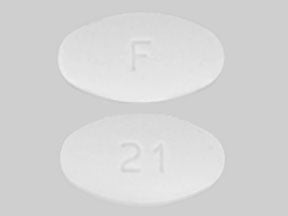
Fosamax Coupons & Savings Card – Discount Prices from $12.82
Brand for: Alendronate
My prescription
Edit
70MG, Alendronate (12 Tablets)
Select pharmacy

CVS
$28.39
COUPON PRICE
Walmart
$12.82
COUPON PRICE
Albertsons
$18.09
COUPON PRICE
Walgreens
$21.26
COUPON PRICEFosamax savings card
Show this card to your pharmacist
Walmart
$12.82
BIN
ID
PCN
GRP
019876
LH604E8F82
CHIPPO
LHX
Powered by
Related bisphosphonates prescriptions
More prescriptions for Paget's disease
Related bisphosphonates prescriptions
More prescriptions for Paget's disease
Price history for Fosamax (brand) & Alendronate (generic)
12 Tablets, 70MG
Average retail price for Fosamax
Average retail price for Alendronate
Average SaveHealth price for Alendronate
Our price history data is based on aggregated prescription data collected from participating pharmacies in America. Our prescription data updates daily to reflect the latest price changes. If you notice a missing data point, it means there wasn't sufficient data available to generate a monetary value for that date.
Over the last 12 months, the average discount price of Fosamax is $12.80 using the SaveHealth savings card. That's an average savings of 97.74% on Fosamax with our discount card.
*Retail prices are based on pharmacy claims data, and may not be accurate when we don't have enough claims.
Fosamax (Alendronate) dosage forms
Dosage Quantity Price from Per unit 70MG 12 Tablets $12.82 $1.07 70MG 4 Tablets $3.77 $0.94 70MG 20 Tablets $20.14 $1.01 70MG 100 Tablets $40.71 $0.41
| Dosage | Quantity | Price from | Per unit |
|---|---|---|---|
| 70MG | 12 Tablets | $12.82 | $1.07 |
| 70MG | 4 Tablets | $3.77 | $0.94 |
| 70MG | 20 Tablets | $20.14 | $1.01 |
| 70MG | 100 Tablets | $40.71 | $0.41 |
Why was Fosamax taken off the market?
Fosamax has not been taken off the market. It is still available and prescribed for the treatment of osteoporosis and other bone-related conditions. However, there have been concerns and discussions about its side effects, such as the risk of atypical femur fractures and osteonecrosis of the jaw, which have led to increased scrutiny and monitoring. Patients are advised to discuss any concerns with their healthcare provider.
What are the downsides of Fosamax?
Fosamax, also known as alendronate, can have several potential downsides or side effects. Common side effects include gastrointestinal issues such as abdominal pain, acid reflux, constipation, diarrhea, and nausea. More serious but less common side effects may include esophageal irritation or ulcers, osteonecrosis of the jaw, atypical femur fractures, and musculoskeletal pain. It is important for patients to discuss their medical history and any concerns with their healthcare provider before starting Fosamax. Regular monitoring and following the prescribed guidelines for taking the medication can help mitigate some risks.
Do doctors still prescribe Fosamax?
Yes, doctors still prescribe Fosamax (alendronate) for the treatment and prevention of osteoporosis in postmenopausal women and to increase bone mass in men with osteoporosis. It is also used to treat osteoporosis caused by glucocorticoid use and Paget's disease of bone. However, the decision to prescribe Fosamax depends on the individual patient's medical history and condition.
Is weight gain a side effect of Fosamax?
Weight gain is not commonly reported as a side effect of Fosamax (alendronate). If a patient experiences unexpected weight changes while taking this medication, it is advisable to consult with a healthcare provider to rule out other potential causes.
Is Fosamax still prescribed for osteoporosis?
Yes, Fosamax is still prescribed for the treatment and prevention of osteoporosis. It is commonly used to help increase bone mass and reduce the risk of fractures in individuals with osteoporosis.
